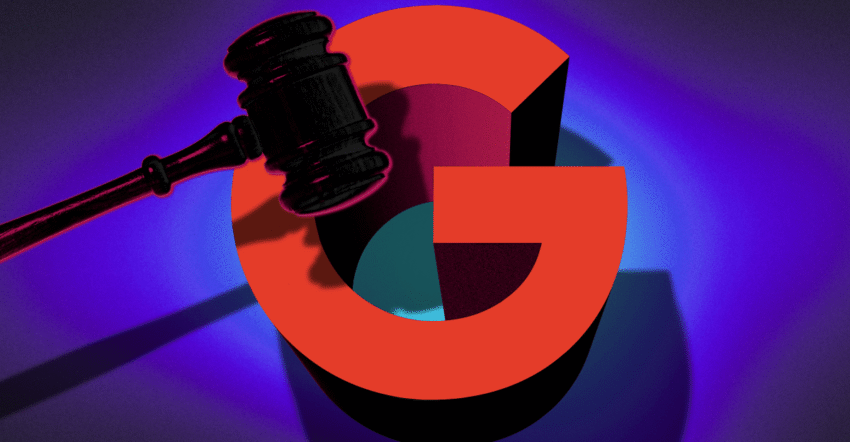After half a decade, after fighting to keep their empire together, Google’s defense is wearing thin.
The company faces a two -front war that can basically renew its business, and, the US Department of Justice argues to open new opportunities for its rivals. Last year a federal judge considered Google an illegal monopoly in the online search market, and last week, a different judge announced that he had it The advertising tech market also made monopolies. On Monday, it will face a new phase in this first war: a three -week trial in Washington to determine the appropriate treatment for restoring the DC online search competition.
Google has vowed to appeal on both decisions, but it does not do so unless in every case, after undergoing treatment, does not allow the DOJ to discuss it for its breakdown and other restrictions. In a court that began on Monday, the government will force Google to sell its Chrome web browser, share search data with rivals, maintain the government’s new AI investment government and eliminate deals with browser and phone makers.
In this and the incoming Aid Tech remaids trial, judges may find that less extreme measures can overcome the losses they think Google has affected it. But this is still the largest anti -trust threat that a major tech company has been facing in the United States for decades – since 25 years ago, the monopoly of Microsoft’s PC operating system is the loss of Microsoft’s historical loss.
Outside the United States, Google has imposed fines on anticotamory charges and has had to make business changes to comply with international rules. But none of them contacted what the DOJ was asking for. If the DOJ takes its way, Google and the Apple can eliminate the most profitable contributions in the Silicon Valley, while competitors like Microsoft may have access to Google’s most valuable data.
During the first phase of the US Anti -Trust trials, known as the Liaison Phase, Google was debated in the debate that it had competed fairly to win consumers with its high products. In this next phase, Google will face judges who have already decided that this is not the case – and Google will only be forced to discuss restricting the penalty.
The DOJ believes that serious steps are necessary to eliminate Google’s search monopoly. It argues that Google’s removal contracts with Apple made it very difficult to break even standard competitors. Becoming Chrome controls Google’s major access points for search engines. And the popularity of Google Search means that consumers give it a large amount of queries data that rivals do not have.
The DOJ also wants to ensure that any treatment imposed by the court is evidence of the future, so Google cannot regain the power of monopoly later. That is why it includes focus on AI, which is worried that it can become an important search platform. Government Retreated back from his request Google to sell its AI investment to Google after President Donald Trump took power, but it Still wants to need Company to inform the government about future investment in space.
The DOJ wants to ensure any treatment imposed by the court that he is the evidence of the future
The court will hear its searching, Android, and Chrome businesses from Google executives, as well as online search rivals such as Dick Dickgo, Microsoft’s Bang, and Yahoo. AIE executives of companies such as Openi and Anxiety will also weigh. The last time the witnesses testified whether Google had taken anti -anti -action in a notable market. This time the government will use them to discuss why its proposed reforms are important – while Google will argue that they can break the tools that enjoy consumers.
Virginia -based Judge Leonie Bankima has not yet set trial dates for therapeutic operations in the Aid Tech case. But in the coming months, the two sides will present their list of wishes how the company works.
These treatments will probably be far more straightforward than those who come in search. Brinkma agreed with the DOJ’s arguments that Google monopolizes markets through two illegally tied services: a publisher’s ad server known as the DFP and its AD Exchange ADX. –
This chrome spin -off may feel less dramatic. But the ad market indicates large parts of the Google Internet economy – this is a place where publishers can make money out of large social networks. And these publishers testified during the entire trial that they were shaking under Google’s wishes. Making this ecosystem more competitive can resurrect the open web.
Mehta can rule the search treatment by the end of the summer. And Burkima – which is in court, which has been relatively rapidly known as the “rocket doctorate” – can possibly also trial this year and can give a decision this year. But Google can advance any concrete changes for years. The company has vowed to appeal the decisions, a way that can take it to the Supreme Court. Trump’s DOJ can also decide to resolve any issue, though since several states are also tied up in legalization, they can treat themselves.
Microsoft’s loss of major distrust, resulting in a breakup. Since George W. Bush’s administration handled the case in 2001, it was decided for a light treatment. Nevertheless, experts say Opened the landscape For new, modern companies. Is one of the greatest beneficiaries? Google.
